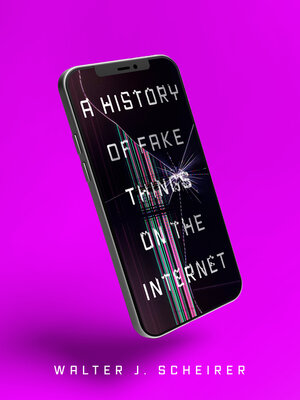
Sign up to save your library
With an OverDrive account, you can save your favorite libraries for at-a-glance information about availability. Find out more about OverDrive accounts.
Find this title in Libby, the library reading app by OverDrive.



Search for a digital library with this title
Title found at these libraries:
| Library Name | Distance |
|---|---|
| Loading... |
A Next Big Idea Club "Must Read" for December 2023
As all aspects of our social and informational lives increasingly migrate online, the line between what is "real" and what is digitally fabricated grows ever thinner—and that fake content has undeniable real-world consequences. A History of Fake Things on the Internet takes the long view of how advances in technology brought us to the point where faked texts, images, and video content are nearly indistinguishable from what is authentic or true.
Computer scientist Walter J. Scheirer takes a deep dive into the origins of fake news, conspiracy theories, reports of the paranormal, and other deviations from reality that have become part of mainstream culture, from image manipulation in the nineteenth-century darkroom to the literary stylings of large language models like ChatGPT. Scheirer investigates the origins of Internet fakes, from early hoaxes that traversed the globe via Bulletin Board Systems (BBSs), USENET, and a new messaging technology called email, to today's hyperrealistic, AI-generated Deepfakes. An expert in machine learning and recognition, Scheirer breaks down the technical advances that made new developments in digital deception possible, and shares behind-the-screens details of early Internet-era pranks that have become touchstones of hacker lore. His story introduces us to the visionaries and mischief-makers who first deployed digital fakery and continue to influence how digital manipulation works—and doesn't—today: computer hackers, digital artists, media forensics specialists, and AI researchers. Ultimately, Scheirer argues that problems associated with fake content are not intrinsic properties of the content itself, but rather stem from human behavior, demonstrating our capacity for both creativity and destruction.







